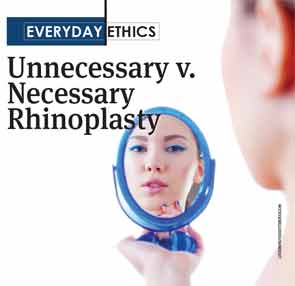Transition to EHR was difficult, but now otolaryngologists practices are utilizing it efficiently




Tips for discussing, handling your observations of cognitive deterioration in aging surgeons

Tips for managing difficult patients, terminating patient relationships

Considerations, responsibilities physicians face when informing patients, families of surgical complications, mishaps


Ethical considerations for otolaryngologists when another physician’s diagnosis, treatment plan seem medically irresponsible

Ethical considerations, treatment benefits and risks that physicians must present to help patients, families make informed decisions

Should a physician try to convince a patient to consider potentially definitive therapy?

A controlled substance agreement can help a physician communicate expectations for their pain medication treatment plan, and guidelines for safe usage by their patients